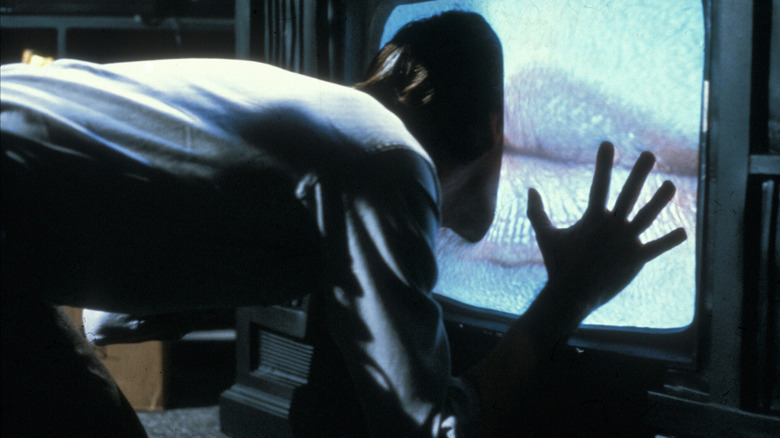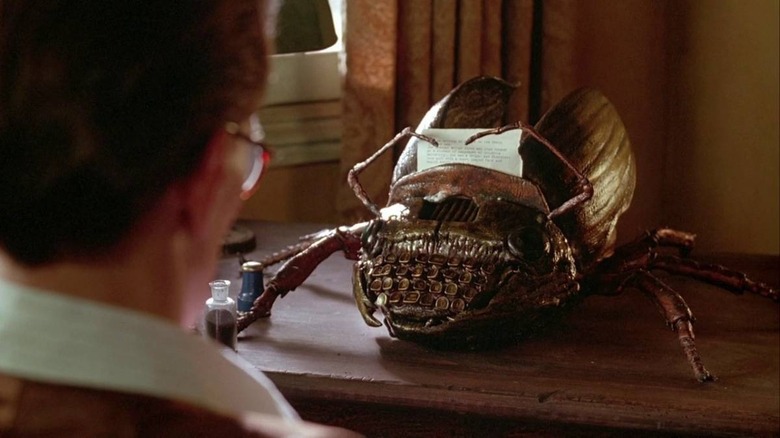
The fascinating filmmaker David Cronenberg has never had a reputation as a traditionalist. The director is known for subverting the boundaries of conventional cinema in order to create uniquely disturbing and unforgettable imagery. Much of his work was made prior to the streaming boom of the 2010s, when films were made primarily to be shown in theaters. Cronenberg argues that streaming a movie gives it a different texture, but that it is not necessarily better or worse than viewing it in a theater. There are benefits to both the globally accessible nature of digital streaming and the quasi-religious experience of attending the cinema.
It is impossible to deny that the landscape of media consumption has drastically changed over the last decade or two. At the 2022 Oscars, "CODA" became the first straight-to-streaming film to win Best Picture (via Forbes). Rather than resist or degrade the inevitable shift to digital consumption, Cronenberg has chosen to lean into it.
This welcome attitude should come as no surprise considering he more or less predicted the future of media in his 1983 sci-fi film, "Videodrome." In this gripping body horror, protagonist Max Renn begins communicating directly with his girlfriend through the television, similarly to how we communicate with each other via video calls. Cronenberg insists that the prophetic nature of the film is unintentional. "If you'd asked me, I wouldn't have said, 'This is the way that the world is going," he explained to Interview Magazine. "But in retrospect, it's pretty obvious."
Going To The Cinema Isn't Sacred, It's Nostalgic

Pedro Almodóvar once argued in favor of the sacredness of cinema, to which Cronenberg responded, "you must perhaps be a Catholic in order to believe that" (via VPro Cinema). Speaking at the 2018 Venice Film Festival, Cronenberg said he sees the introduction of Netflix and streaming as a permanent disruption to cinema, and to embrace the positive aspects. "If you make a movie for Netflix, it might never be seen on a cinema screen, but in one day it will be released in 190 countries," he exclaimed, adding he found it to be "really quite incredible."
The "Crimes of the Future" director is willing to debate whether or not a movie "made for Netflix" is "really cinema," since it will never be shown in a movie theater, instead screened "on your iPhone, your Apple Watch maybe." Cronenberg jocularly added that he "wouldn't mind seeing 'Lawrence of Arabia' on an Apple Watch," that to watch it in that format "would be a different movie, but it would be interesting."
Visual media and screens have been deeply embedded into everyday life. Some films and series made for Netflix, like "Stranger Things," are heavily based in the very "nostalgia" Cronenberg believes will keep people coming back to the theater. "It will be a retro activity, going to a cinema," the "Naked Lunch" director mused, like "people who still type on typewriters." Cronenberg seeks to disrupt cinema himself, so it makes sense that he bears a certain level of reverence toward streaming services for doing so. I'm left wondering if Cronenberg himself would make a film that goes directly to a streaming site so others around the world might watch his film on their Apple Watches, but only time will tell.
Read this next: The 20 Best '80s Horror Movies Ranked
The post Why David Cronenberg Doesn't Care If You Watch Movies in a Theater appeared first on /Film.
0 Comments